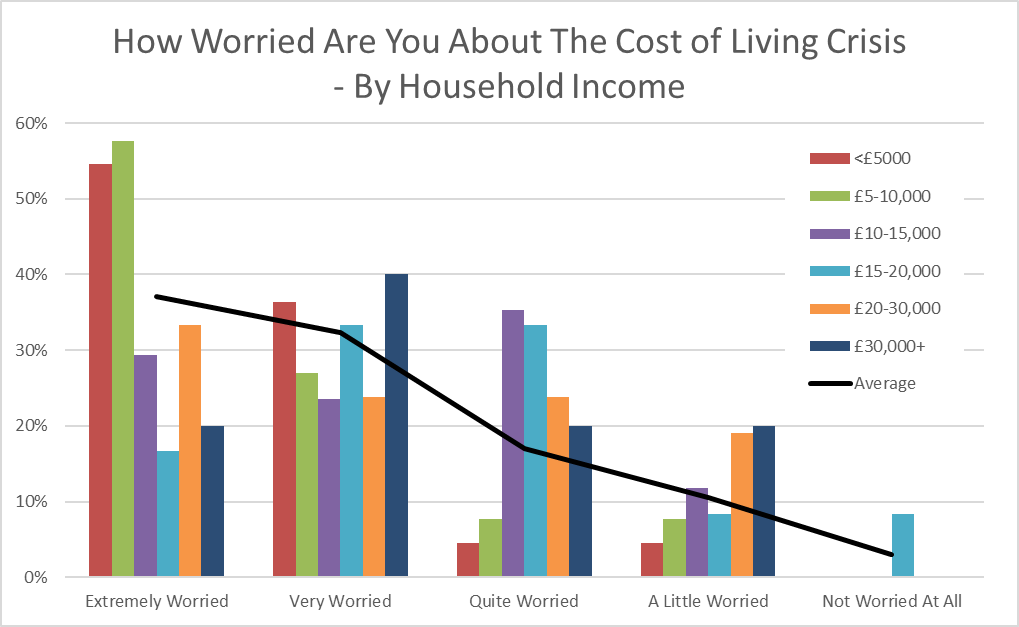In a newly released report, Mentally Healthy Leeds, a Touchstone service, have undertaken research into the effects of the Cost of Living Crisis on the mental health of people in Leeds. Read on to find out more…
This research looks at the effects of the ‘Cost of Living’ crisis on the mental health of people in Leeds, as well as trying to understand what forms of support were effective during this period. The aim was to prioritise the experiences of people on low incomes, as a group particularly vulnerable to this crisis. Data was collected using a survey carried out over 6 weeks in early 2023. We combined quantitative and qualitative methods to identify common themes. The 182 responses to our questionnaire suggest that this is a topic which hit close to home for a lot of people.
The responses paint a clear picture of the ways in which many people are struggling during the crisis, with most participants being very worried about it. Many have had to heavily cut back on food and heating to make ends meet, to the detriment of their health. This has had a significant impact on the mental health of respondents with stress (57%), difficulty sleeping (33%), and the worsening of existing mental health conditions (25%) being the most common responses.
The practical support offered during the crisis was very helpful to those who accessed it. Food banks and similar forms of food provision helped with food costs, while the Warm Spaces scheme provided a social lifeline as well as a chance to escape the cold. However, 53% of our participants hadn’t accessed support despite struggling during the crisis. Stigma and a lack of knowledge about support stopped many from reaching out for help even in some of the most desperate cases.

The responses supported the evidence from background reading suggesting that the crisis has hit those on the lowest incomes hardest. Participants with a household income below £10,000 per year tended to be more worried by the crisis, suffered more extreme effects from the increased cost of living, and their mental health was subsequently more heavily affected as well.
This research was focussed on the winter, and heating costs certainly played a significant role in the crisis. However, it would be short-sighted to assume that these problems disappeared once it got warmer. Some participants spoke of a feeling of hopelessness as they looked ahead, and until the underlying issues which created the crisis are resolved it is hard to say that they are wrong.
To support people through this crisis we recommend the continuation of practical support through food provision and the Warm Spaces program. This should be combined with promotion and outreach aimed at increasing awareness of the support available and fighting the stigma which still surrounds poverty.





